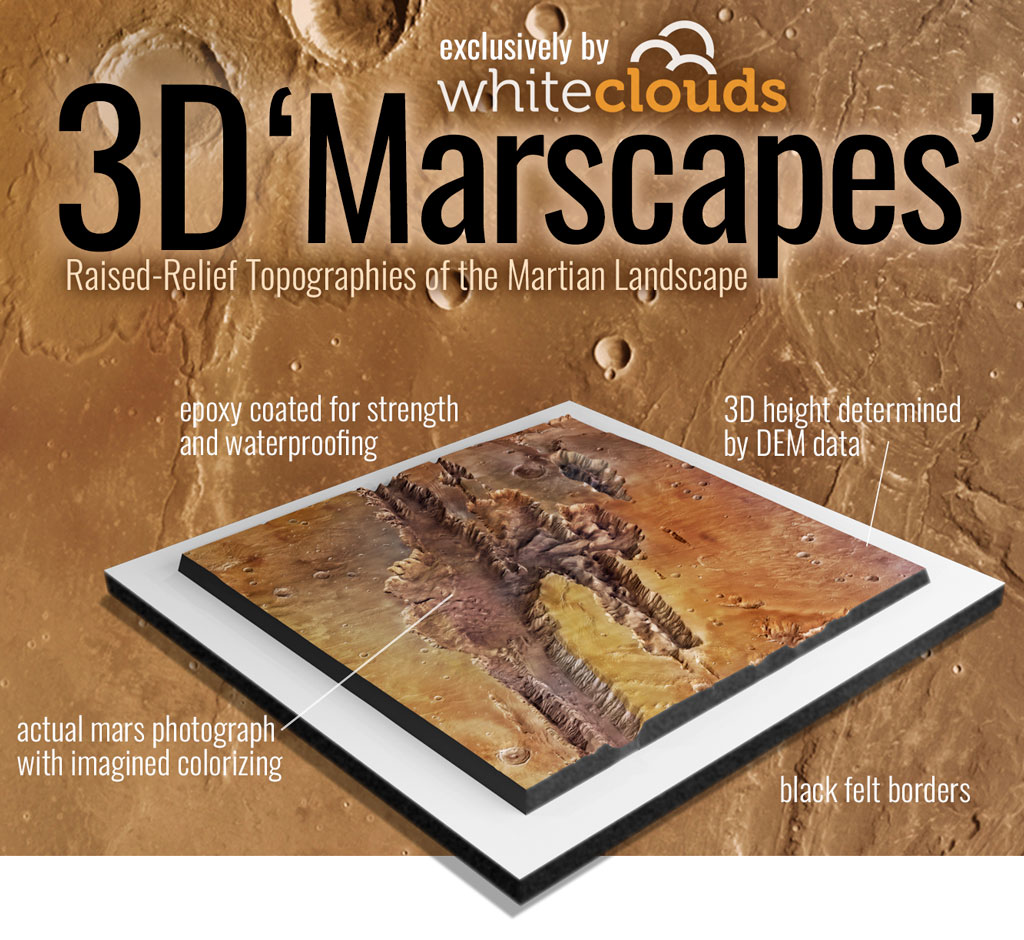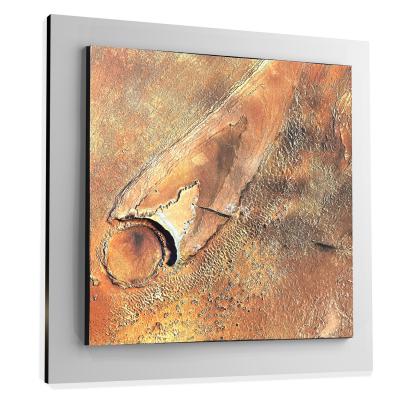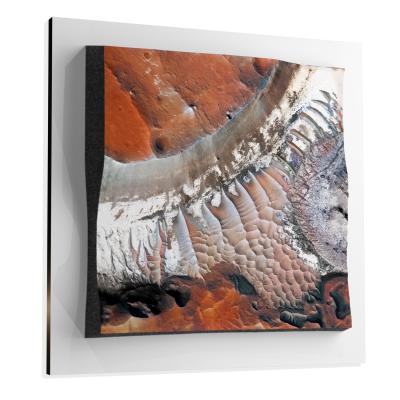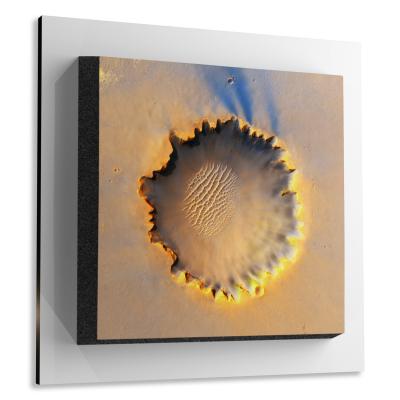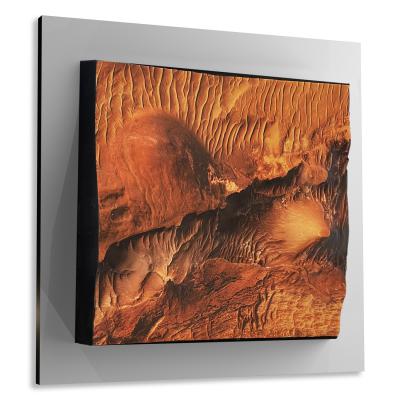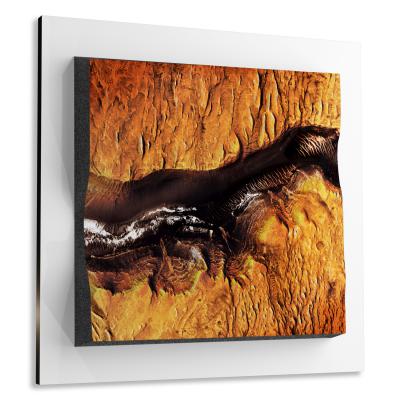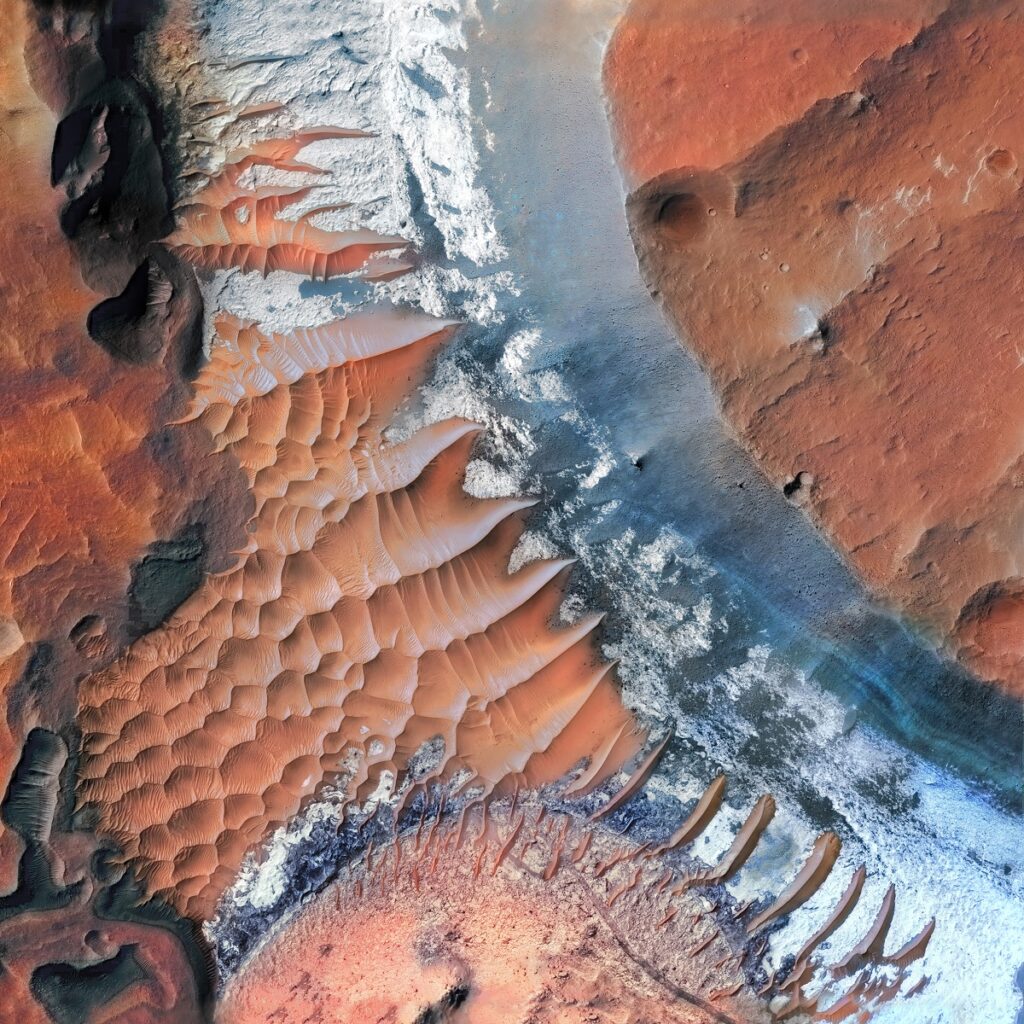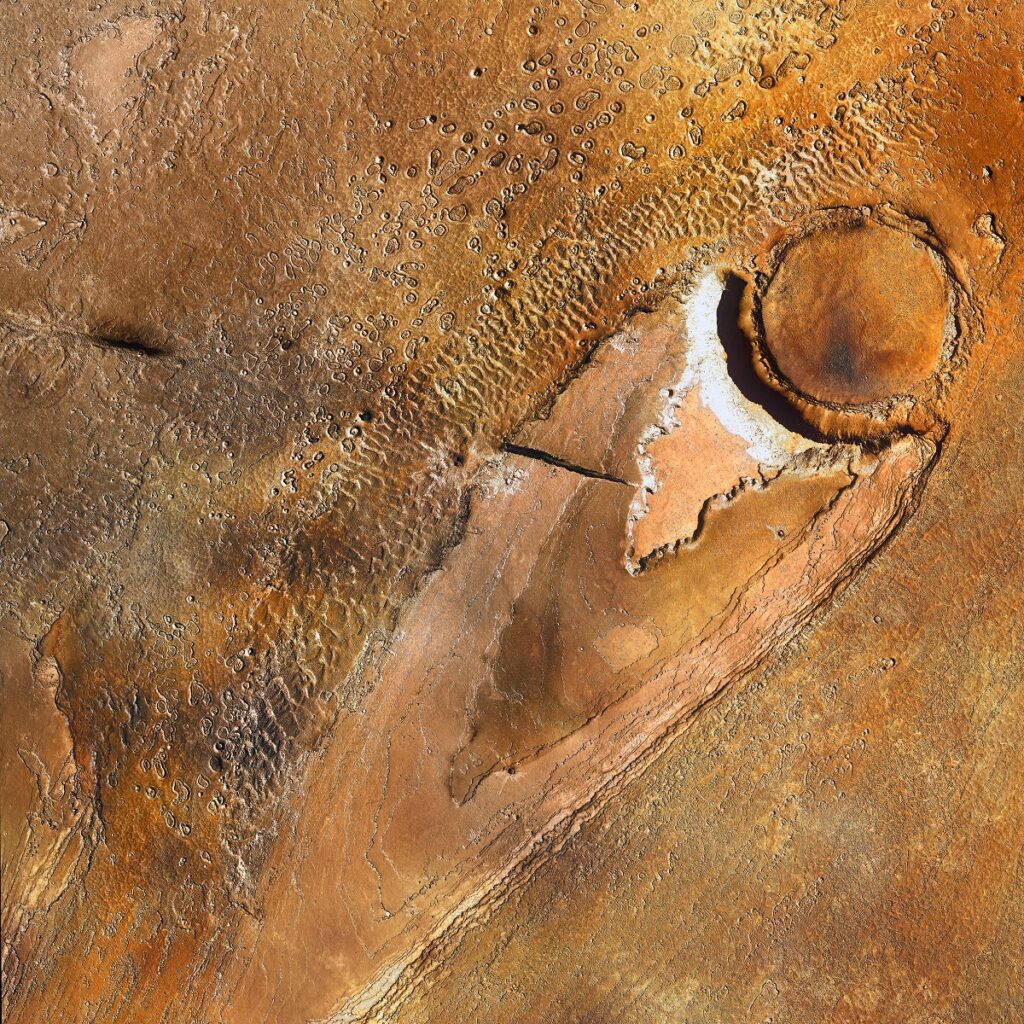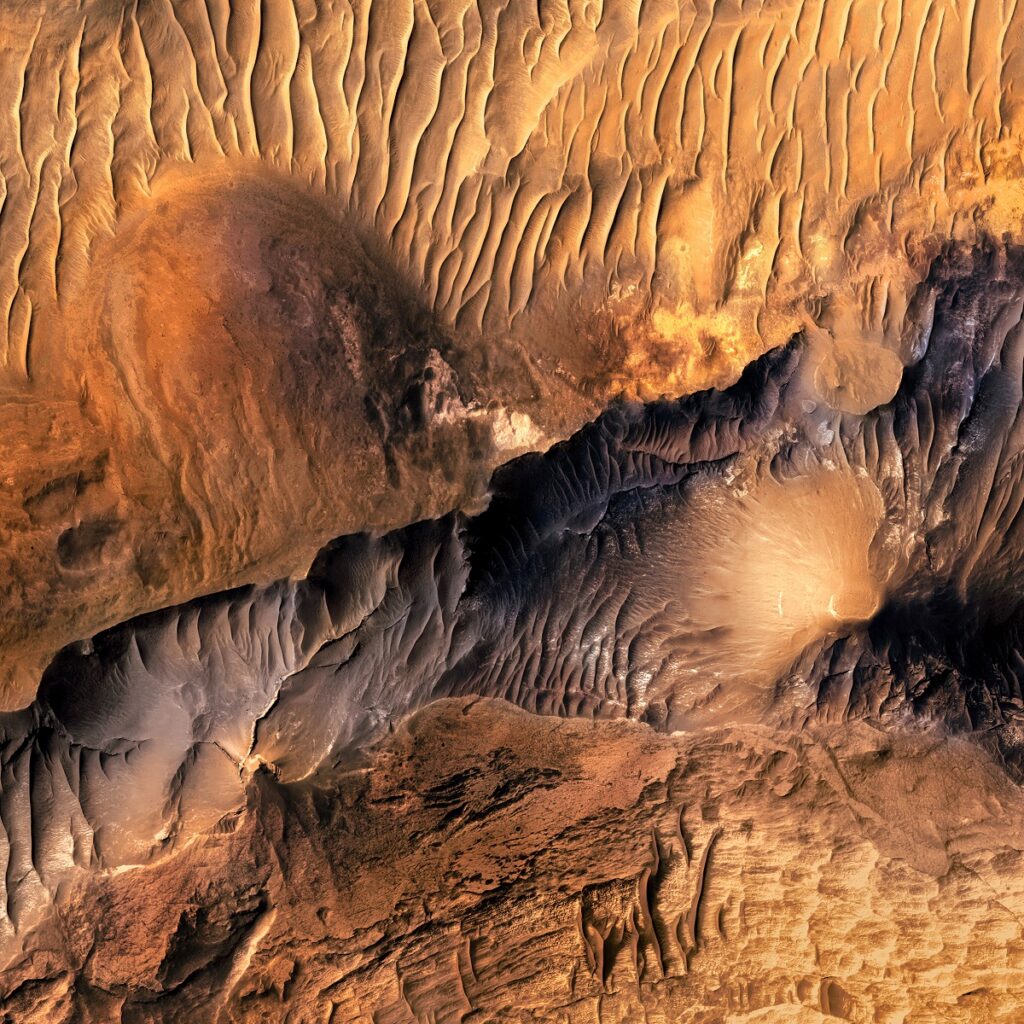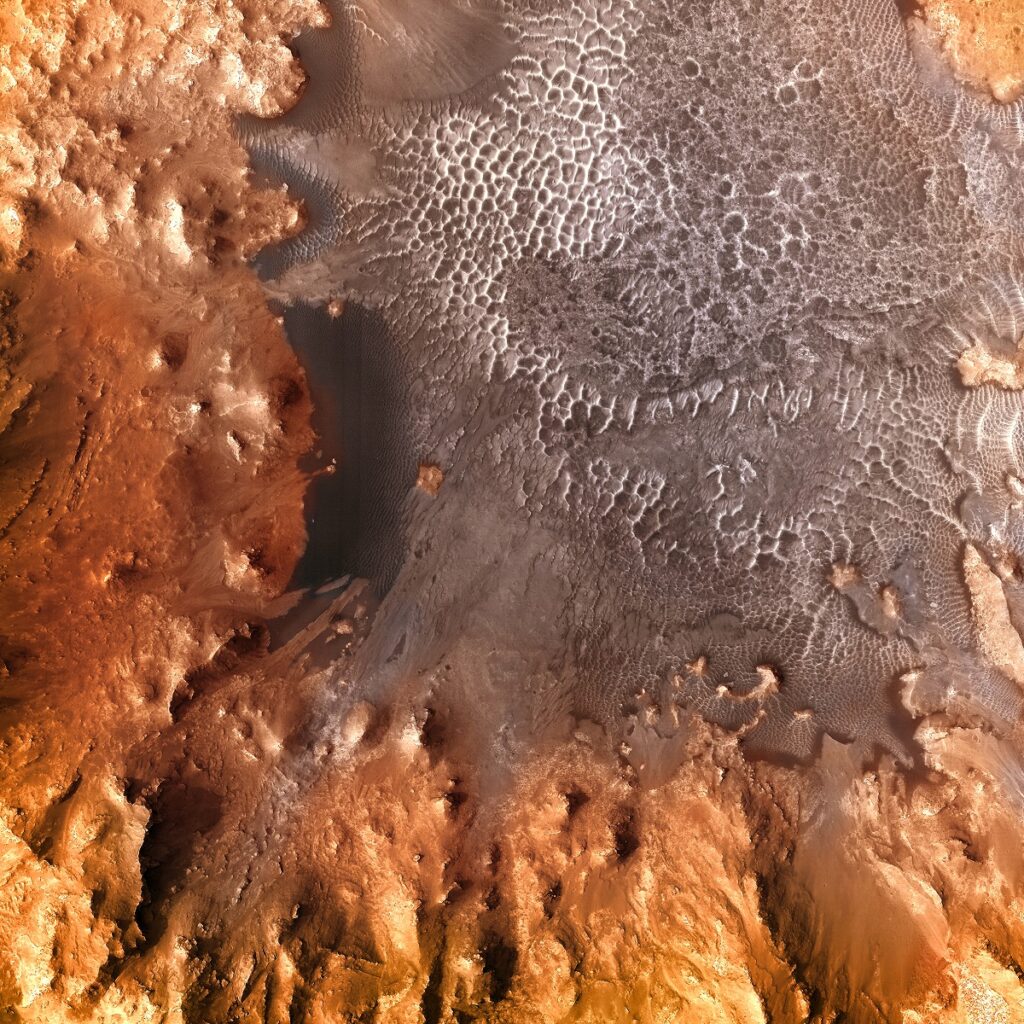Arsinoes Chaos
Arsinoes Chaos
We Build Custom 8K Mars Canvas Prints of Arsinoes Chaos
Did you know we make
custom
8K Mars Canvas Prints
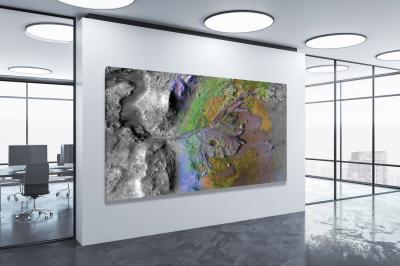
and
3D Marscapes
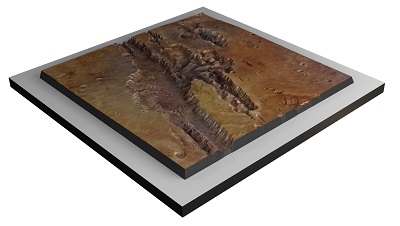
Arsinoes Chaos
Arsinoes Chaos is one of the lesser-known yet profoundly intriguing geological formations on Mars. It captures the imagination with its chaotic terrain, riddled with large blocks of fractured crust, valleys, and potential signs of ancient water flow. Often overshadowed by other Martian regions like Olympus Mons or Valles Marineris, Arsinoes Chaos is a geological treasure trove that could hold clues to the Red Planet’s tumultuous past and its potential for hosting life.
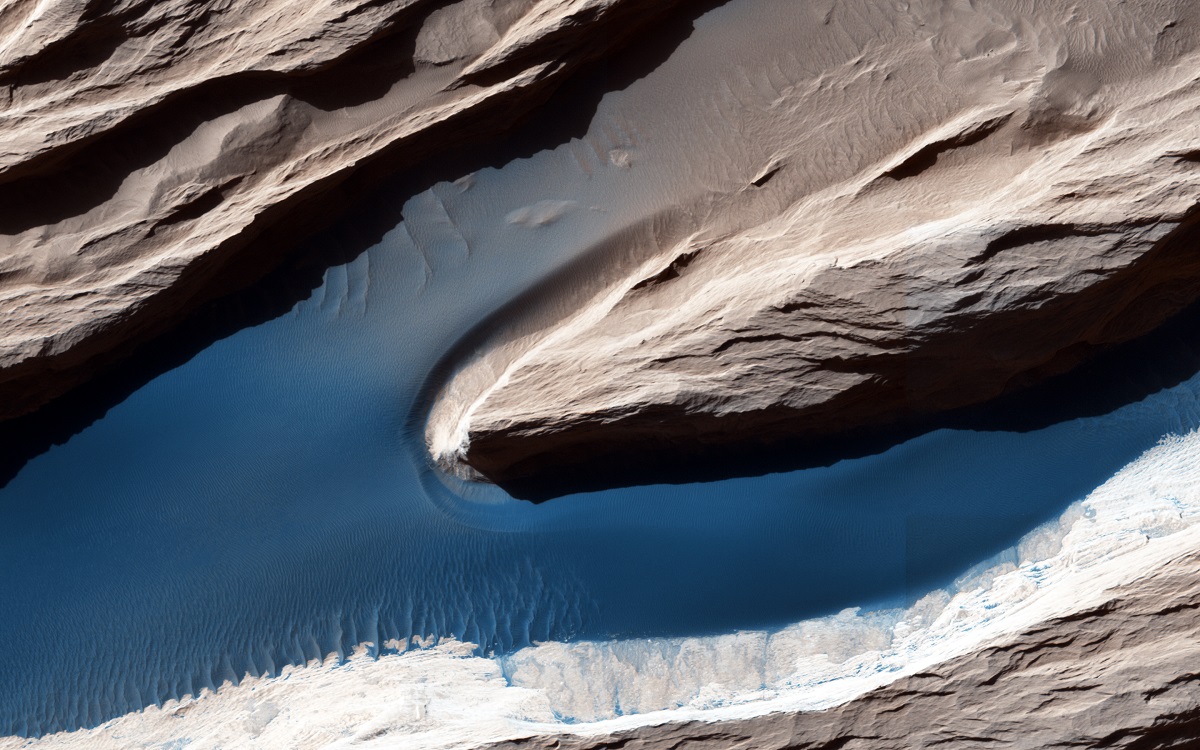 Yardangs in Arsinoes Chaos
Yardangs in Arsinoes Chaos
Geographical Location
Nestled within the extensive Margaritifer Sinus quadrangle, Arsinoes Chaos occupies a strategic and fascinating position in the southern hemisphere of Mars. Its coordinates pinpoint it at roughly 8.5°S latitude and 25.5°W longitude. Covering a sprawling expanse that measures approximately 160 kilometers in both length and width, the area presents a compelling setting for scientific exploration. One of the most striking aspects of its geographical location is its proximity to significant Martian landmarks, including the Ares Vallis, an ancient river valley system, and the Holden Crater, a large impact crater that also suggests ancient fluvial activity. This makes Arsinoes Chaos a geological junction of sorts, connecting elements from disparate Martian epochs. This rich blend of geohistorical contexts makes it a prime target for studies aiming to unravel both older and more recent Martian geological timelines, presenting a panorama of planetary history in a single, complex region.
Advertisement
Sample Marscapes
Geological Composition
The labyrinthine terrain of Arsinoes Chaos serves as an intricate tapestry that narrates a convoluted geological saga. The region is peppered with fractured and dislocated blocks of Martian crust made up of a heterogeneous mix of rock types, including sedimentary layers, igneous formations, and possibly even metamorphic features. High-resolution spectroscopic analyses have unveiled the presence of a broad spectrum of minerals, including clays, sulfates, and iron oxides. The particular interest in sulfates and clays arises from their association with water-rich environments. Their presence paints a vivid picture of Mars’ hydrological past, indicating that this chaos terrain likely hosted liquid water at some point. Further intrigue comes from zones within Arsinoes Chaos where volcanic ash appears to be prevalent. This not only points to past volcanic activity but also introduces additional complexity to the already multifaceted geological composition of the area.
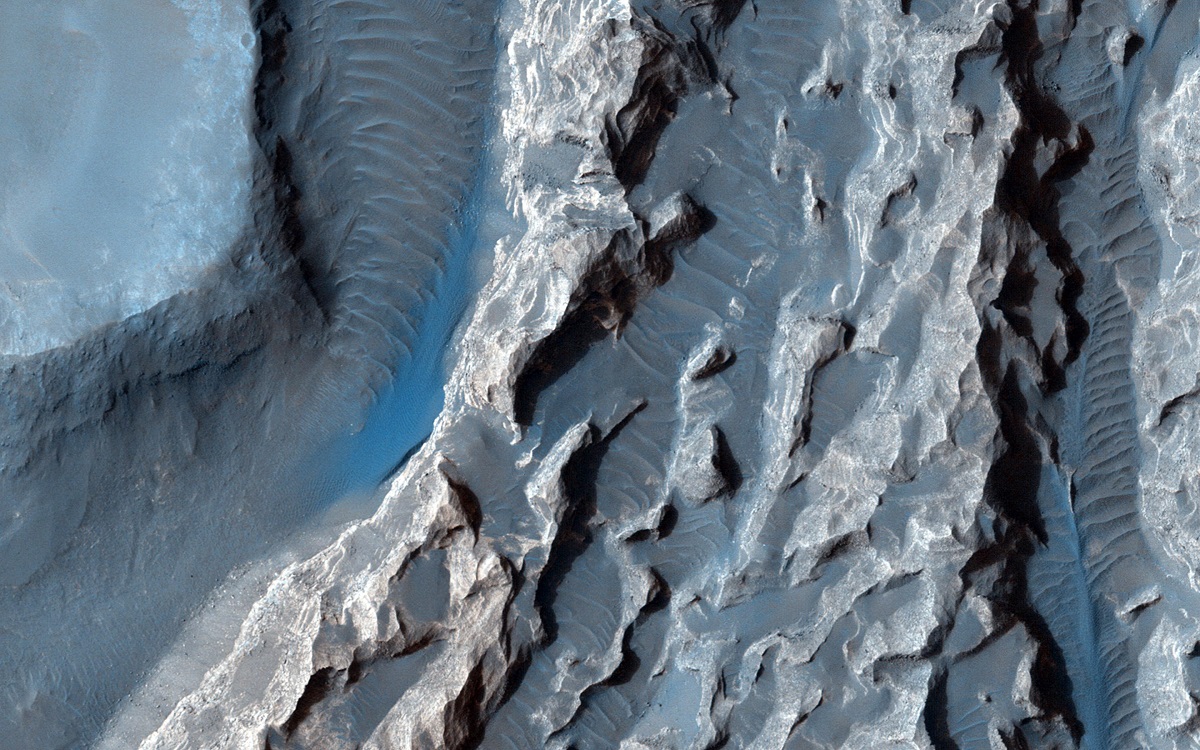 A Light Toned Deposit in Arsinoes Chaos
A Light Toned Deposit in Arsinoes Chaos
Significant Discoveries
Ancient Hydrological Features
Among the groundbreaking discoveries in Arsinoes Chaos are the unmistakable signs of ancient water features, including channels and interconnected valley networks. These topological traits are consistent with water flow and strongly suggest that liquid water played a substantial role in shaping the chaotic terrain. When coupled with the mineralogical evidence of water-dependent minerals such as clays and sulfates, these hydrological features provide robust substantiation for theories suggesting a wetter Martian past, replete with water bodies and active hydrological cycles.
Subsurface Cavities
Another captivating aspect of Arsinoes Chaos is the identification of large subsurface cavities or underground voids. These intriguing features could have been caused by the collapse of subsurface aquifers or ice reservoirs, potentially due to planetary heating or other dynamic geological processes. The existence of such voids serves as an additional line of compelling evidence for the historical presence of water reserves, either in liquid or ice form, further enriching our understanding of Mars’ complex geological and hydrological history.
Scientific Missions
Arsinoes Chaos has been extensively studied from Martian orbit, primarily by high-powered telescopic instruments on spacecraft like NASA’s Mars Reconnaissance Orbiter (MRO). The MRO has delivered stunningly detailed topographical maps along with invaluable mineralogical data, which have been instrumental in piecing together the geological puzzle of this region. In addition to the MRO, the European Space Agency’s Mars Express has provided a wealth of topographic data that further enrich our understanding of this area’s multifaceted geomorphology. Looking ahead, there’s palpable excitement about the possibility of future rover missions. Given its proximity to the Ares Vallis, it is plausible that upcoming missions could extend their exploratory scope to include Arsinoes Chaos, offering an even closer, ground-level scrutiny of this intricate and revealing landscape.
Geomorphological Features
The geomorphological profile of Arsinoes Chaos is nothing short of riveting. Characterized by an intricate blend of jagged, fractured, and displaced blocks of crust, the region also boasts valleys, depressions, and even elevated plateaus that appear to have been uplifted, rotated, and repositioned by geological forces. These towering blocks and plateaus are interspersed with what appear to be ancient river valleys and sedimentary basins, further pointing to a history of water activity. Elements of erosional features are also evident, likely attributed to aeolian (wind) processes and potentially past fluvial (water) activity. These suggest that the chaotic terrain has been shaped by a myriad of environmental factors over its long history, making Arsinoes Chaos a critical area for understanding the complex interplay of geological, hydrological, and aeolian processes on Mars.
Arsinoes Chaos is not just a chaotic jumble of rocks and valleys; it is a geological puzzle offering clues to Mars’ distant past and potential for life. From evidence of ancient water channels to its complex mineralogy, every piece of data extracted from this intriguing region brings us one step closer to understanding the Red Planet’s history. s future missions continue to explore Mars, Arsinoes Chaos should be high on the list of locations warranting closer investigation, for it offers a rich tapestry of geological and potentially hydrological phenomena awaiting unraveling.
More About Mars
Contact us today to learn more about our 3D services and how we can help you achieve your goals.
